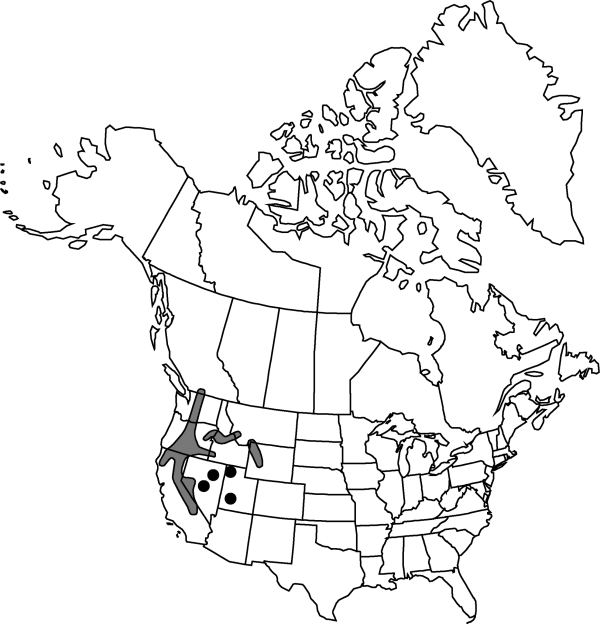Cistanthe umbellata
Phytologia 68: 268. 1990.
IllustratedEndemic
Basionym: Spraguea umbellata Torrey Smithsonian Contr. Knowl. 6(2): 4, plate 1. 1853
Synonyms: Calyptridium umbellatum (Torrey) Greene Calyptridiumu umbellatum var. caudiciferum (A. Gray) Jepson Spraguea umbellata var. caudicifera A. Gray
Plants perennial, taprooted; caudex branching. Stems 1 from each rosette, ascending to erect, to 60 cm. Leaves: basal in 2–many prostrate rosettes, blade spatulate, (0.5–)2–7(–15) cm; cauline leaves usually absent. Inflorescences umbellate or subumbellate, dense, globose, 1–2 cm diam. Flowers subsessile; sepals orbiculate, equal, 3–8 mm, scarious; petals 4, white, 3–8 mm; stamens 3, anther red or yellow; style exserted, filiform; stigmas 2. Capsules globose, 2–3 mm; valves 2. Seeds 1–8, black, orbicular-reniform, 0.7–1.2 mm, shiny. 2n = 44.
Phenology: Flowering May–Oct.
Habitat: Dry sandy or gravelly soils
Elevation: 1500-4300 m
Distribution

B.C., Calif., Idaho, Mont., Nev., Oreg., Utah, Wash., Wyo.
Discussion
Selected References
None.
Lower Taxa
None.